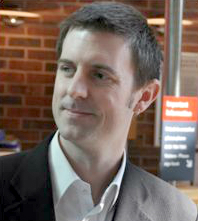
Geoff Pearson is the Director of Studies of the MBA Football Industries at the University of Liverpool.
The football industry is bigger and more highly regulated than at any stage in its history, and there is no evidence that this commercial or regulatory growth will slow in the foreseeable future. Indeed, with the discovery of new income streams and a seemingly insatiable appetite for broadcast and new media rights, revenues are set to continue on their upward trajectory. Coupled with this is the expanding regulatory framework designed to protect event brands, maintain uncertainty of outcome and reduce the risk of legal dispute. UEFA’s complex Financial Fair Play rules are the most obvious contemporary example of this; the rules have the potential to deny some of the most successful teams in recent seasons the chance to participate in the biggest and most lucrative tournament, the UEFA Champions League. As a result, the importance of long-term financial planning for clubs has never been so stark.
Historically the football industry has not always been run by those best equipped to make informed decisions on the important issues of finance, law and new technology. Clubs and Governing Bodies are still staffed by those who fell into their jobs by virtue of accident, family or personal connection or because they were former professional players. Unsurprisingly this often contributed to short-term planning based on outmoded and inappropriate ideas. Leagues struggled, clubs went bankrupt, stadium disasters occurred and the people making the mistakes typically remained in football, benefiting from the industry’s basis on ‘who you know’ rather than ‘what you know’.
Fortunately, commercial pressures have meant that in terms of employment, football is finally starting to change. Networking and face-to-face contact remains integral, but clubs, governing bodies, agencies, suppliers and the multitude of other employers are seeing the value of bringing in talent with the necessary skills and expertise to navigate their organisations through this commercial and regulatory maze. The value of education, in an industry based on the skills of individuals usually encouraged to leave school as soon as possible, is finally starting to be recognised.
However, football-specific programmes are still few and far between. Run in association with FA Learning and based in the AACSB-accredited Management School at the University of Liverpool, the MBA (Football Industries) programme (FiMBA) is the only one of its kind in the world. Established in 1997, the programme is based on the principle that teaching existing practice in football is not enough for the new breed of football executives. Students are encouraged to consider what good practice from other industries can be brought into football, as well as being taught the latest cutting-edge developments in the sport. Core modules teaching the key principles of Economics, Accountancy and Strategy are complemented by football-specific modules on Finance, Law, Marketing, Media and Events Management. Additionally, in the Becoming a Football Executive module, students are taught the skills necessary to flourish in a high-profile, challenging and fast-paced business environment.
The FiMBA course also encourages students to develop their own personal network in football through a comprehensive guest speaker and club/organisation visit programme, a placement scheme, and the extensive contact list of its staff and alumni. Over 200 FiMBA alumni are currently working in football or related industries and the 2012/13 SportBusiness Business Masters Survey found that 64% of recent FiMBA graduates were working in sport (the vast majority in football) within 3 months of graduation. The independent survey ranked FiMBA the Number 1 Football Business Masters course, the best business programme for sport generally in the UK, and 6th in the world for post-graduation income.
If you are considering a career-change into football, or a development of your existing career in the industry, postgraduate education can play a huge role and the FiMBA programme could well be key to achieving your own personal goal.
Geoff Pearson is the Director of Studies of the MBA Football Industries at the University of Liverpool.
Global Sports: the world’s leading specialist careers platform for the international sports industry